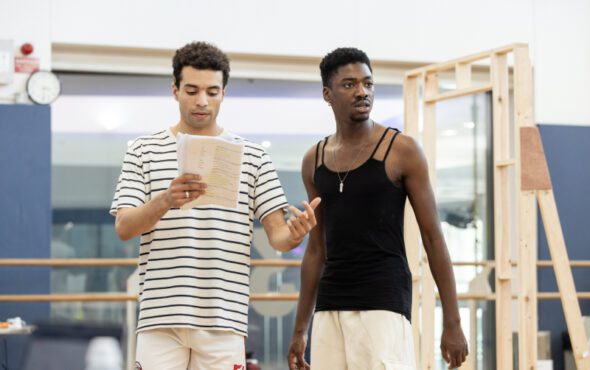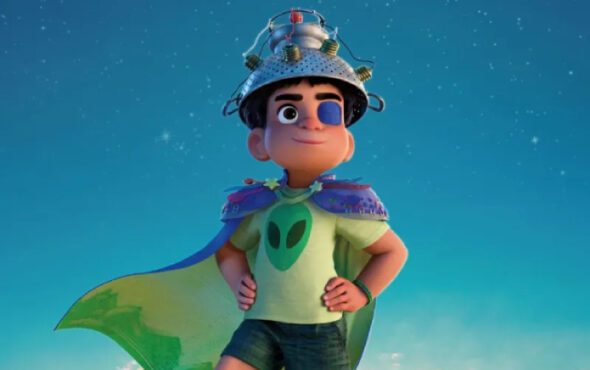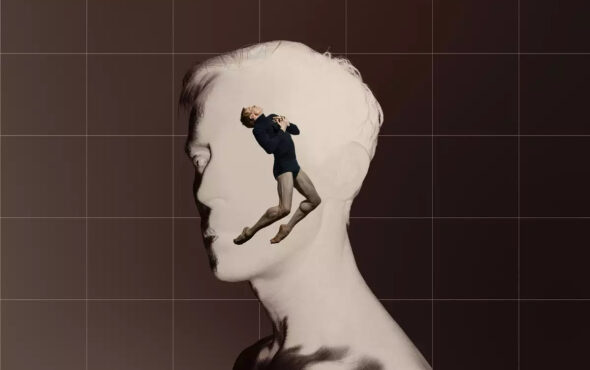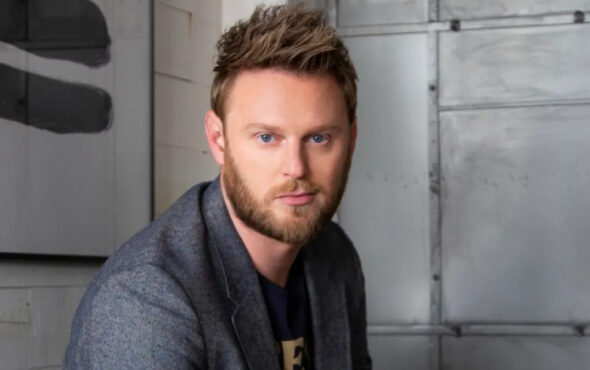
We’re looking forward to the 30th anniversary revival of Jonathan Harvey’s classic queer play Beautiful Thing, which opens for previews at the Theatre Royal Stratford East later this week, and will move onto the Leeds Playhouse and HOME Manchester later this autumn. Ahead of the show’s opening, we caught up with director Anthony Simpson-Pike – who recently directed Grenfell: In the Words of Survivors at the National Theatre – to find out a bit more about this new production.
For those unfamiliar, Beautiful Thing is a seminal piece of queer theatre, which debuted in 1993 and was subsequently made into a film by Channel 4 in 1996. It’s a classic coming out and coming-of-age tale, focusing on the lives of teenage boys Ste and Jamie, who are neighbours on a South London estate. Over to Anthony to tell us more about the show…
First of all, we’ve heard there’s a scene where one of the boys steals a copy of Gay Times magazine – is that right? “Yeah there is, actually! Jonathan [Harvey] actually has a Gay Times copy from 1993, when the play is set, which is in immaculate condition, which we’re using as one of the props. That feels like holding a bit of history.” Well, while we can’t condone that sort of behaviour, we’ll certainly look out for the 30-year-old edition of the magazine in the show.
Without giving away any spoilers – what can Anthony tell us about this revival of Beautiful Thing? “In a sense, it’s about freedom. It’s about finding out who you are, and the bravery of that, but also what that means for the people around you, and finding strength in the people around you as well. It’s a coming-of-age story about two young teenage boys who discover each other anew, and the relationship that develops opens up new possibilities for the future. It’s set on an estate in Thamesmead and I think all of the characters are dreaming of being somewhere else, a new world beyond Thamesmead and the constraints of expectations.”
We wanted to find out more about why Anthony was keen to be part of the 30th anniversary revival of this particular show. “When it was written and first performed, it was at a time when HIV and AIDS was a prevalent part of the cultural conversation – in fact that copy of Gay Times I was talking to you about, that’s one of the subjects on the cover. At the same time, Section 28 was in force, there was a bit of a moral panic around gay people and gay men – in particular in relation to HIV and AIDS. So this play was quietly radical, it was a play which had a happy ending and the characters didn’t die at the end.”
“That felt really important,” Anthony continues, “and that as well is why it’s such a seminal work. People have been getting in touch with me even before the play has opened, talking to me about how much it’s meant to them, how much it helped them, at a certain point in their life, to be brave or discover themselves in some way. I was thinking, 30 years on, what is it doing? It’s exciting that it’s the 30th anniversary, but what does it mean today?”

Photo: The Other Richard
So, why is it relevant today? “That quiet radicalism that I was talking about, it feels relevant now. We were in rehearsals last week – the same week that I read that two guys had been stabbed outside the Two Brewers, just for existing. I think, sometimes, people feel that we’ve moved on so much that actually stories like this aren’t as relevant any more, but I don’t agree – I think actually it still holds a lot of relevance, and I think that a lot of the arguments that were made against gay men at the time are being refashioned against trans people, and you’re finding the same arguments being rehashed, almost verbatim.”
“It feels to me that it’s radical now as well because it has a happy ending, and these characters are so real, they’re not cliches, they’re working class,” Anthony continues. “One of the reasons that I was interested in doing the production is that there are these seminal pieces of queer film or theatre, but I realised that I’d never seen two black men kiss on stage, and actually I don’t really see people who look like me in these stories. What would it mean, on the 30th anniversary, to open that up and say that this story can be true for all of us? To include new audiences and let them see themselves reflected on stage?”
And finally – why does Anthony think that Gay Times readers should come and see Beautiful Thing? “It’s really funny, it’s surprising, it’s a new take on a modern classic, and I think that it has something important to say, all these years later. It will hopefully speak to new audiences who haven’t always been able to see themselves in queer stories. I think it’s a balm for these times, and it’s a different take on a well-known play – so even if you know the play, there will be some new surprises for you. It’s got such heart and such beauty, I think it’s an opportunity to spend an hour and a half with real people who love each other as strongly as they might cuss each other… I think the truthfulness of it, amongst all of the comedy, is really rare – it feels beautiful.”
Beautiful Thing plays in London at the Theatre Royal Stratford East from 8th September to 7th October, then at the Leeds Playhouse from 18th October to 28th October, then at HOME Manchester from 31st October to 11th November.



